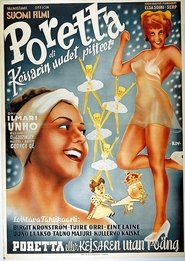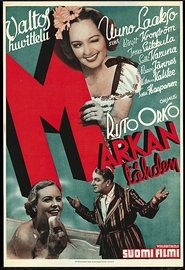detail profile kullervo kalske

Kullervo Kalske
Keijo Kullervo Kalske
atau dikenal sebagai
Riwayat Hidup
Keijo Kullervo Kalske (February 28, 1912, Lahti, Finland – January 26, 1977, Helsinki, Finland) was a Finnish actor.
Kalske, who worked as a police officer in Kotka before his film career, had performed occasionally at Kotka City Theater.
Bulky and broad-shouldered, the 186-centimeters-tall Kalske was often seen on stage and in films in the roles of a soldier, a police or a guard, who he was perfectly fit to interpret with professionalism due to his police background.
He played the role of a police or an officer in more than 30 films, most of which were small since the 1950s.
Throughout the 1950s, Kalske, who was one of the most popular movie heroes of the late 1930s and 1940s, managed to get just a few larger movie roles in movies.
His last film role was in the 1971 film The Count.
On television, he still appeared in 1978 in the miniseries Men of War and Peace.
He performed at the Finnish Workers' Theater in the 1940s and Helsinki City Theater since 1957.
From Wikipedia (fi), the free encyclopedia
Info Pribadi
Peran Yang Di Mainkan Kullervo Kalske
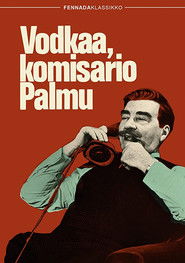 A TV reporter is murdered when...
A TV reporter is murdered when...Vodkaa, komisario Palmu 1969
A TV reporter is murdered when he is eavesdropping on a secret Finnish-Soviet conference. The National Broadcasting Corporation enlists the help of police lieutenant Palmu, who comes out of retirement for this case. However, some have their doubts about the loyalities of Palmu, seeing that he was spotted in a diplomatic soiree in Moscow just a few weeks before the murder.
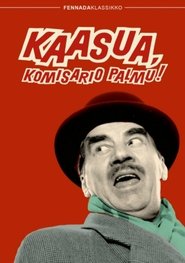 A rich widow is found dead...
A rich widow is found dead...Gas, Inspector Palmu! 1961
A rich widow is found dead in her apartment in Helsinki due to gas poisoning. The incident is initially thought to be an accident, but inspector Palmu notices that the murderer made a mistake, and so Palmu, Kokki and Virta begin the investigation: who had come to the apartment through the balcony door and opened the gas tap while Mrs. Skrof was asleep?
 Justiina pushes Pekka and Ptk to...
Justiina pushes Pekka and Ptk to...Pekka ja Pätkä mestarimaalareina 1959
Justiina pushes Pekka and Pätkä to take painting lessons after realizing that art can be a way to earn a living. With the help of the yard children, a painting is created that wins first prize at a contemporary art exhibition. In the meantime, the men, along with their assistant Miss Kaihokielo, have been charged with art theft. After the misunderstanding is cleared up, the Puupääs use the art prize money to convert the house's bomb shelter into a children's clubroom.
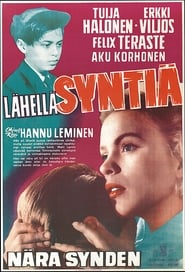 A story about the love and...
A story about the love and...Lähellä syntiä 1955
A story about the love and subsequent life story of agronom Elmer Oras and Margi Kaski and their son. The story has its origins just before the Winter War. After a brief encounter, both fell in love. As a result of this love affair, Margit gets pregnant Soon the war breaks out and Elmer has to go the front. As the war goes on, Elmer does not return from a patrol mission behind the enemy lines. After the war times are hard for Margit and his fatherless son.
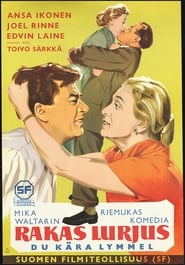 It is a time of extreme...
It is a time of extreme...Rakas lurjus 1955
It is a time of extreme housing shortage in Helsinki. People with room in their flats are required either to find subtenants or to lodge anyone sent by the housing commission. Abel and Jussi Siimes, two devoted haters of women, find themselves in this predicament. They need to find a subtenant quickly to avoid the possibility of the housing commission sending a woman, God forbid it, to live with them. Abel's acquaintance, an assessor, recommends his nephew Kaino as the perfect choice.
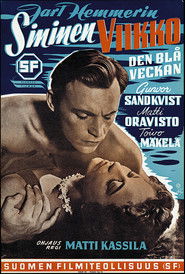 After a weekend of dancing and...
After a weekend of dancing and...Scarlet Week 1954
After a weekend of dancing and camping on a recreation island near the city, a young factory worker decides to stay and cut work for a day. Walking around the now deserted island, he meets a beautiful woman camping alone and sunbathing in the nude on the beach. A hot romance flares up between the worker and the more upper-class married lady, lasting through the light-filled nights of the whole summer week until the woman's much older husband returns to the island the next weekend.
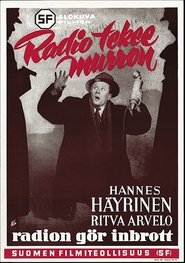 Eager young radio reporter Tersvuori stages...
Eager young radio reporter Tersvuori stages...Radio tekee murron 1951
Eager young radio reporter Teräsvuori stages a one-man burglary into the Helsinki Art Museum, recorded on tape for a later broadcast by his friend Laakso. Things go awry when a gang of real criminals overhear their plans and book their heist to coincide. Teräsvuori gets caught but escapes from police custody to start his private investigations together with female radio colleague Eila.
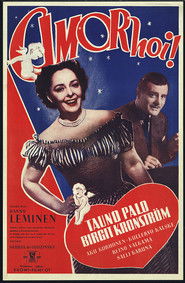 Master Tuula Vihervo teaches languages at...
Master Tuula Vihervo teaches languages at...Amor hoi! 1950
Master Tuula Vihervo teaches languages at a women's college, where American-Finnish Charles Thompson Jr arrives to do an inspection on behalf of his father's college donor. The arrival of a guest and Tuula's infatuation causes a stir inside the college and in a restaurant in Helsinki, where Tuula starts performing as the singer Irina Meller.
 The boyish temperamental chemistry student Elsa...
The boyish temperamental chemistry student Elsa...Ruma Elsa 1949
The boyish, temperamental chemistry student Elsa Kassel disapproves of her mother and sisters running after men, but when she hears that she's referred to as "ugly Elsa", she takes on a transformation. The new, charming Elsa tests her attractiveness on men and causes confusion all the way to her mother's new groom, Professor Harjula.
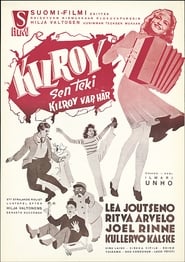 Ulla Jrvinen gets a telegram about...
Ulla Jrvinen gets a telegram about...Kilroy sen teki 1948
Ulla Järvinen gets a telegram about the death of her aunt and that she has inherited a manor, but the aunt is very much alive.
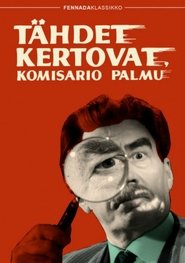 A mans body is found on...
A mans body is found on...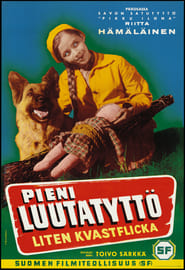
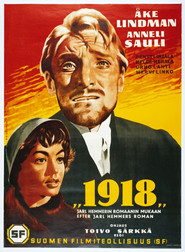 Pastor Samuel Bro has lost his...
Pastor Samuel Bro has lost his...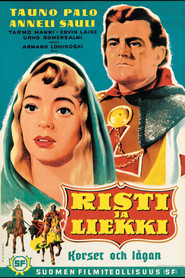 Set in early 16th century Finland...
Set in early 16th century Finland...
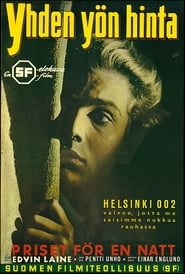 The streets of Helsinki Finland at...
The streets of Helsinki Finland at...
